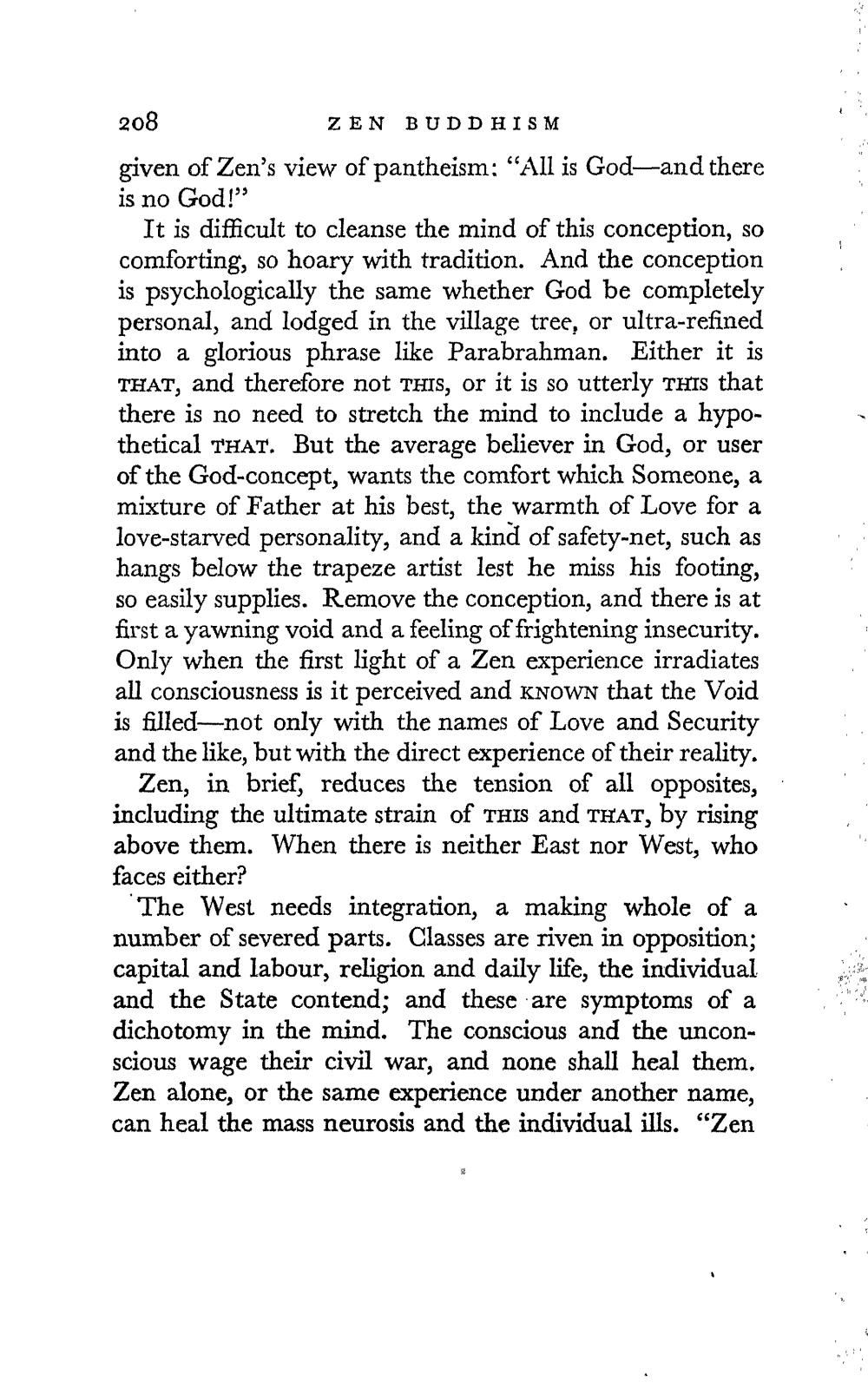________________
208
ZEN BUDDHISM given of Zen's view of pantheism; "All is God—and there is no God!"
It is difficult to cleanse the mind of this conception, so comforting, so hoary with tradition. And the conception is psychologically the same whether God be completely personal, and lodged in the village tree, or ultra-refined into a glorious phrase like Parabrahman. Either it is THAT, and therefore not THIS, or it is so utterly THIS that there is no need to stretch the mind to include a hypothetical THAT. But the average believer in God, or user of the God-concept, wants the comfort which Someone, a mixture of Father at his best, the warmth of Love for a love-starved personality, and a kind of safety-net, such as hangs below the trapeze artist lest he miss his footing, so easily supplies. Remove the conception, and there is at first a yawning void and a feeling of frightening insecurity. Only when the first light of a Zen experience irradiates all consciousness is it perceived and KNOWN that the Void is filled—not only with the names of Love and Security and the like, but with the direct experience of their reality.
Zen, in brief, reduces the tension of all opposites, including the ultimate strain of this and THAT, by rising above them. When there is neither East nor West, who faces either?
The West needs integration, a making whole of a number of severed parts. Classes are riven in opposition; capital and labour, religion and daily life, the individual and the State contend; and these are symptoms of a dichotomy in the mind. The conscious and the unconscious wage their civil war, and none shall heal them. Zen alone, or the same experience under another name, can heal the mass neurosis and the individual ills. “Zen
.




